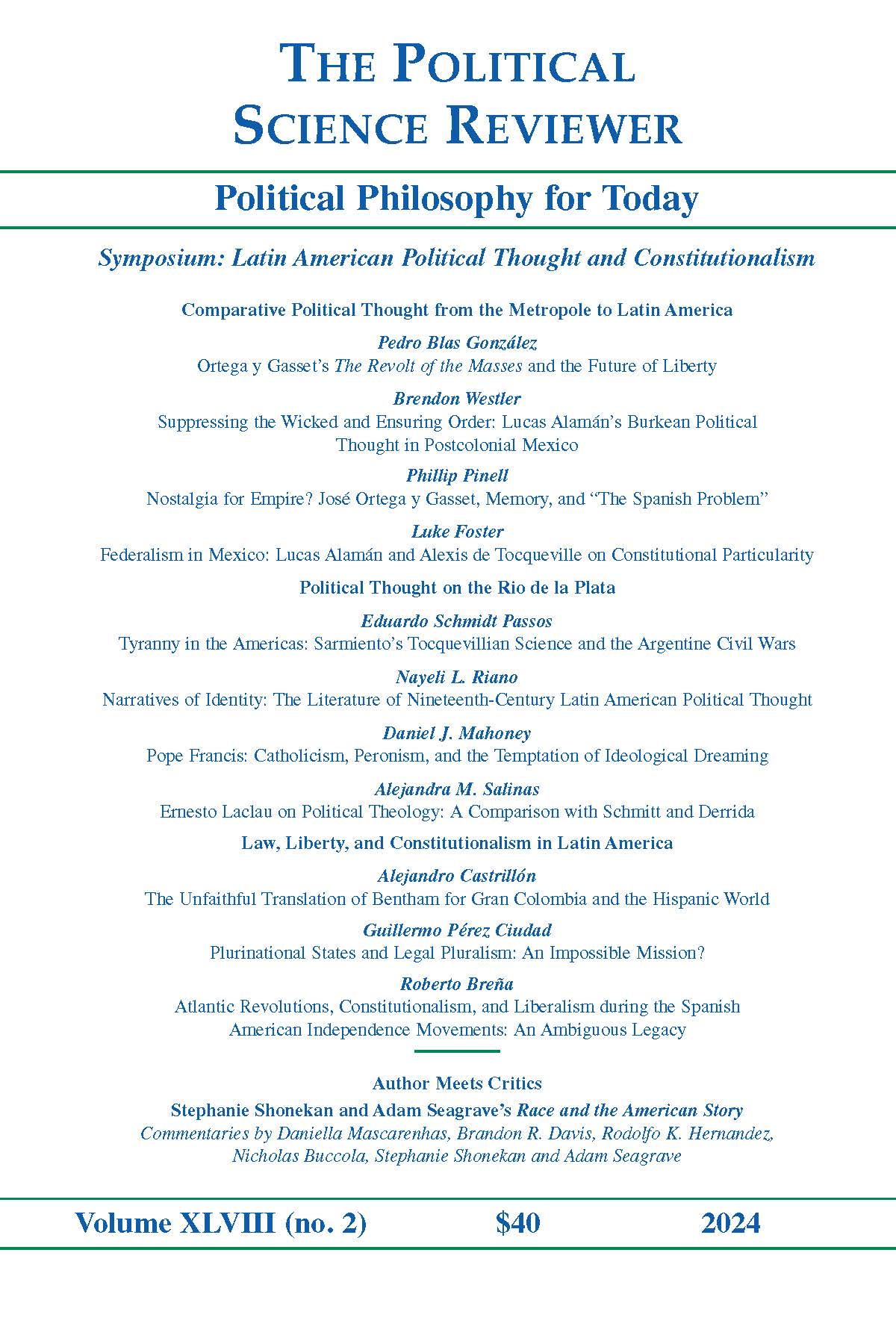Abstract
This paper argues that the supporters of Jeremy Bentham’s utilitarian principles in the Gran Colombia skillfully propagated his views through targeted adaptive methods within a religious and political conservative stronghold. Although Bentham believed in the universality of his rational and utilitarian principles, their global dissemination required the practical act of translation, an act which often failed to achieve a genuine fidelity to the original. Hispanic audiences were introduced to Bentham’s writings through the translation of Ramón Salas, a thinker, who admittedly altered, edited, and revised his subject’s work. Salas stretched, corrected, and altered Bentham’s own statements to appeal to Hispanic audiences steeped in Catholic teachings and Scholasticism in two fundamental ways. First, he determined narrow moments of convergence with natural law approaches and utilitarian principles. He also reinterpreted religious dictums and doctrines to coincide with Bentham’s aims. Salas proved instrumental in integrating Bentham into a seemingly incompatible tradition. His rhetorical tactics were emulated abroad by Colombian defenders of utilitarianism who faced vitriol from religious and conservative voices in their country.
